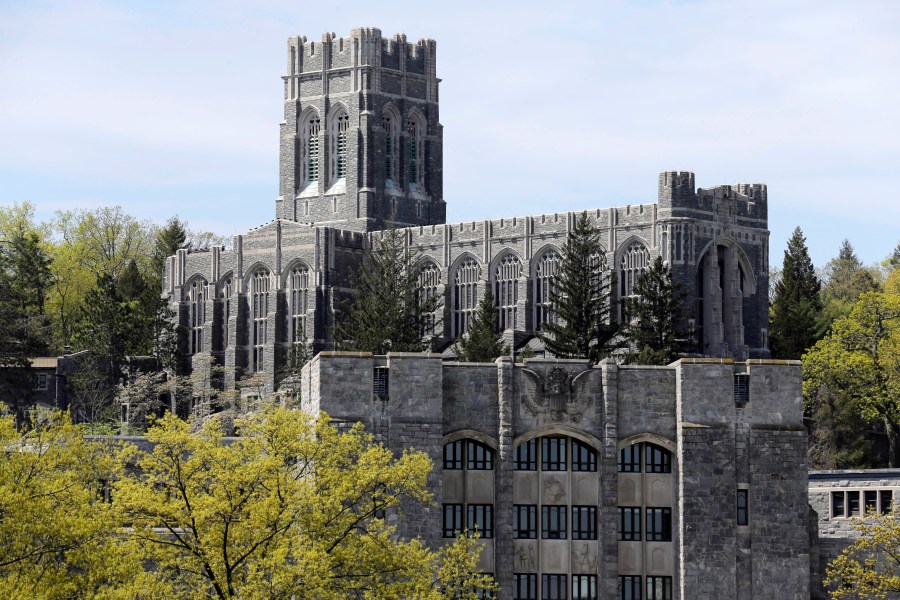
The U.S. Military Academy at West Point, N.Y., has ordered a dozen cadet extracurricular and social clubs to immediately and permanently “cease all activities,” with all affected groups centered around gender, race and ethnicity, the school acknowledged Wednesday.
A memo dated Feb. 4 and signed by Chad Foster, deputy commandant at West Point, directed the clubs to immediately disband, cancel any trips, meetings, events, and other activities, and “unpublish, deactivate, archive, or otherwise remove all public facing content.”
The clubs are also not authorized to continue informal activities using government time, resources, or facilities, as noted in the memo notes.
The shutdown, which affects such clubs as the Society of Women Engineers and the National Society of Black Engineers Club, is meant to comply with the Trump administration’s axing of diversity, equity, and inclusion (DEI) programs across the federal government, according to the document.
Webpages for the disbanded groups, which were listed as “affinity clubs” on West Point’s directory, have been removed from the academy’s site.
Where the sites once were, an error message was displayed on Wednesday.
The memo further instructs the Directorate of Cadet Activities, the oversight body of more than 100 West Point clubs and sports teams, to “review and revalidate” all other extracurricular and social clubs “to ensure they are aligned with applicable” presidential executive orders and Defense Department and Army guidance. Until then, the other clubs not targeted for disbandment are to cease activities.
The move is part of a broader effort to remove all race- and sex-based preferences within the military in what supporters claim is a bid to “restore America’s fighting force.”
To that end, Defense Secretary Pete Hegseth on Jan. 29, directed the establishment of the “‘Restoring America’s Fighting Force’ Task Force” to promote “merit-based, color-blind policies” throughout the U.S. military. The group is charged with reforming the military’s promotion and job selection process, with a mandate that the department “will not consider sex, race, or ethnicity when considering individuals for promotion, command, or special duty.”
Officials also were directed to ban sex-based, race-based, and ethnicity-based quotas and goals for organizational composition and admissions to defense academic institutions and career fields, as well as prohibit the instruction of critical race theory, gender ideology, and DEI initiatives in workforce training.
Hegseth, two days later, on Jan. 31, instructed the Pentagon to halt celebrations of “identity months,” including Black History Month and Pride Month.
That followed the Army and Air Force shutting down their respective DEI offices and programs on Jan. 23.
In a statement, West Point said it is reviewing programs and activities affiliated with its former office of Diversity and Inclusion in accordance with recent guidance.
“The clubs disbanded yesterday were sponsored by that office,” officials said. “More than one hundred clubs remain at the U.S. Military Academy, and our leadership will continue to provide opportunities for cadets to pursue their academic, military, and physical fitness interests while following Army policy, directives, and guidance.”
The full list of disbanded clubs includes the Asian-Pacific Forum Club, Contemporary Cultural Affairs Seminar Club, Japanese Forum Club, Korean-American Relations Seminar, Latin Cultural Club, Native American Heritage Forum, the Vietnamese-American Cadet Association, and the West Point chapters of the National Society of Black Engineers, Society for Hispanic Professional Engineers, and Society of Women Engineers.
Also affected are Spectrum, a social club that provides support to LGBTQ cadets and promotes acceptance of such individuals in the larger military community, and Corbin Forum, a women’s leadership group founded in 1976, the first year women were allowed into the academy.
West Point, which has long sought a diverse student body, for the past decade has been in the crosshairs of the national debate about whether race, gender and other characteristics should play a role in school admissions, job recruitment and promotions.
For its class of 2028, West Point administrators selected about 1,230 U.S. citizens and 16 international students – including 280 women and 445 minorities – out of a pool of more than 12,300 applicants.












